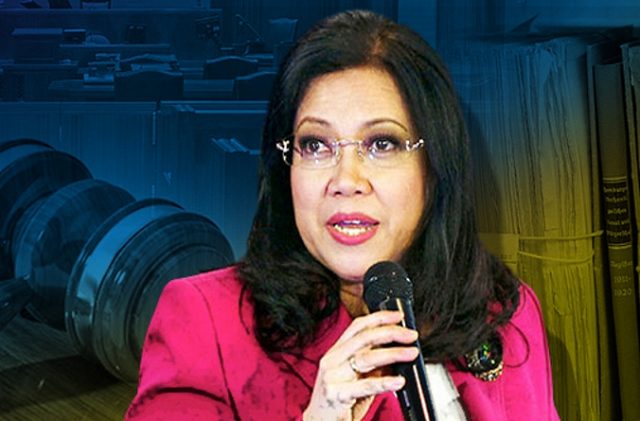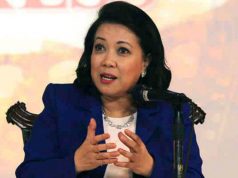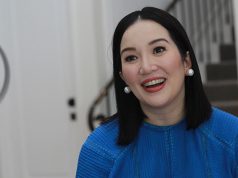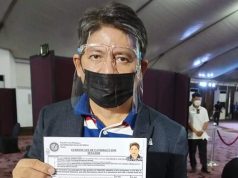MANILA – The House Justice panel will rule, before Wednesday’s (Nov. 22) hearing on determination of probable cause in the impeachment complaint against Chief Justice Maria Lourdes Sereno, whether to grant two similar motions seeking to allow Sereno’s lawyers to cross-examine witnesses for her.
However, in the view of Justice committee chair Rep. Reynaldo Umali – apparently confident the panel will reject in a vote the two motions – Sereno will be at a terrible disadvantage if she insists on not appearing personally or not confronting the witnesses against her.
“You know, the right to counsel happens in the actual trial. Pero . . . wala pa tayo sa trial [But we’re not yet in the trial stage]. [This seems akin to a] preliminary investigation [but it’s not a] preliminary investigation,” Umali said in a radio interview Sunday, as Sereno’s lawyers , with backing from Albay Rep. Edcel Lagman, insist on allowing the chief magistrate to field her counsel to the hearing.
Umali said, “hindi established ang mga rights dito to counsel [the rights to counsel are not established here]. And unfortunately, under our rules, we do not allow lawyers to speak. So [that’s what we’ll have to resolve, whether or not to allow this]. Pero [But] at the end of the day, it will be the vote of the majority that will be followed.”
The Justice panel chief continued, in his DZBB interview: “Unfortunately for the respondent . . . I’m just thinking aloud, [there is a] super majority and [it won’t be easy, as they say, to pass something like that; to let that motion win in a vote].”
He said “whatever will be the majority vote, will be the basis of our decision.”
In his position paper last week, Lagman had said that the process of determination of probable cause in an impeachment is akin to that in a criminal case. Lagman, a lawyer, said to prohibit Sereno from deploying her lawyers to cross-examine witnesses against her would render useless the right to counsel enshrined in the Bill of Rights.
Umali acknowledged the similarity, but stressed that an impeachment is sui generis [in a class of its own].
“In fact, it cannot be a criminal case [because the respondent in this case is not jailed; we don’t have the power to order his/her jailing].” Instead, Umali said, “this is also akin to [an] administrative case [where removal from office is the punishment for the respondent].”
Thus, Umali concluded, “it’s neither criminal nor administrative, anywhere in between that,” and that is why he does not think the so-called right to counsel repeatedly invoked by Sereno lawyers and by Lagman would apply in this case. “And more than that, if I may say so, siya ay respondent lang, siya ay hindi akusado [she is just a respondent here, not yet accused].”
The Sereno camp had earlier floated the possibility that the chief justice may take her case before her own peers and seek the en banc’s opinion on the unprecedented debate.
Umali, however, noted that the Constitution clearly does not grant the SC any jurisdiction on impeachment cases. He said the Charter states “the impeachment court is the sole judge of any issues pertaining to impeachment. So [maybe] the more appropriate venue” for raising the issue “should be the impeachment court and not the Supreme Court.”
He said that for one thing, Sereno is not entirely helpless even though there is a super-majority in the House that is apparently against her. The requirements of strong evidence will still be imposed on the complainants, and the “ground of course [is] defined . . . under the Constitution and the rules. Culpable violation of the constitution, graft and corruption and other high crimes, betrayal of public trust.”
In his view, said Umali, simple probable cause just won’t do, “dapat merong [there should be] prima facie evidence. Pero ang sinasabi ng rules namin ay probable cause lang [and yet our rules require only probable cause].”
He expressed hope Sereno will reconsider and personally attend Wednesday’s hearing to determine probable cause.
“If she does not attend, it’s her own lookout [because] I don’t know how [the] allegations or charges against her can be controverted without her attendance. . . . Under the rules . . . the lawyers are not allowed to speak for the respondent. . . . So if she does not attend. whatever is presented to us cannot be controverted” and will be included in the report that becomes the basis for voting on probable cause.










